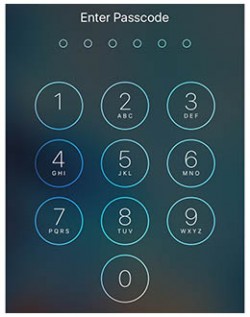 Ahead of Apple’s court date with the Federal Bureau of Investigation tomorrow, Bloomberg has taken a dive into the company’s history with the FBI to chart the buildup to the heated battle over security and encryption on smartphones. The timeline begins with Apple’s introduction of iOS 8 in June of 2014, with Apple subsequently providing the FBI early access so the law enforcement agency “could study how the new system would change evidence-gathering techniques” ahead of the public release of iOS 8 in September of that year.
Ahead of Apple’s court date with the Federal Bureau of Investigation tomorrow, Bloomberg has taken a dive into the company’s history with the FBI to chart the buildup to the heated battle over security and encryption on smartphones. The timeline begins with Apple’s introduction of iOS 8 in June of 2014, with Apple subsequently providing the FBI early access so the law enforcement agency “could study how the new system would change evidence-gathering techniques” ahead of the public release of iOS 8 in September of that year.
High-ranking officials at the FBI quickly learned that iOS 8 introduced a new form of encryption into the software that prevented any government agent, or Apple itself, from accessing data stored on the smartphone.
With that significant change in iOS 8, the relationship between Apple and the FBI began to destabilize, but the government didn’t have enough backing to support legislation that would help it bypass the encrypted features of the new iOS. But with the San Bernardino terrorist attack last December, the FBI had a foothold to help it take the encryption issue public.
“The reason the relationship went south is the government was expecting some degree of accommodation on the part of the technology companies,” said Timothy Edgar, the former director of privacy and civil liberties for the White House National Security Staff from 2009 to 2010. “They were expecting the companies to essentially back down and not go forward with new security measures that would make it impossible for you to access devices or communications. They were caught off guard by basically being told to get lost.”
According to one of Bloomberg‘s sources, the government’s first cause for concern with Apple’s encryption actually began all the way back in 2010 when the company launched the encrypted video messaging service FaceTime, followed by iMessage in 2011. With the apps making it impossible for the FBI to even peek into criminal activity, the government was rapidly being made aware of “how much of a premium Apple put on privacy.”
A few attempts at legislation that would allow the FBI to access encrypted data on smartphones with a court order were made sometime in 2013, but subsequently abandoned following the Edward Snowden controversy that year. According to Timothy Edgar, the former director of privacy and civil liberties for the White House, “there was a real split” in the administration regarding the encryption legislation.
When it became clear that the administration wouldn’t support a new law that would help investigators gain access to iPhones and other devices, many FBI agents became frustrated and disappointed. Some recalled that the bureau was pilloried for not connecting the dots to prevent the Sept. 11, 2001, terrorist attacks, according to Leo Taddeo, the former special agent in charge of the New York FBI special operations and cyber division.
That sequence of events and the subsequent San Bernardino shooting ultimately led the government to take the issue public and seek a court order for Apple to unlock Syed Farook’s iPhone, leading to Tim Cook’s non-compliance letter, and the court date with the FBI on March 22. According to Edgar, now a senior fellow at Brown University, “Lawyers think privacy is you can’t listen to my conversation without a warrant; technologists think privacy is you can’t listen to my conversation, period. It’s hard to reconcile those two points of view.”
Apple has said that if the courts rule in favor of the FBI in the encryption case, it’s ready to take the issue all the way to the Supreme Court. More recently, some Apple engineers have stated that if the company is forced to unlock the San Bernandino iPhone, they may decide to not comply with the ruling.
Check out Bloomberg‘s full story for more of the history between Apple and the FBI ahead of tomorrow’s court date.
Note: Due to the political nature of the discussion regarding this topic, the discussion thread is located in our Politics, Religion, Social Issues forum. All forum members and site visitors are welcome to read and follow the thread, but posting is limited to forum members with at least 100 posts.
Discuss this article in our forums
Source: MAC ROUMORS
